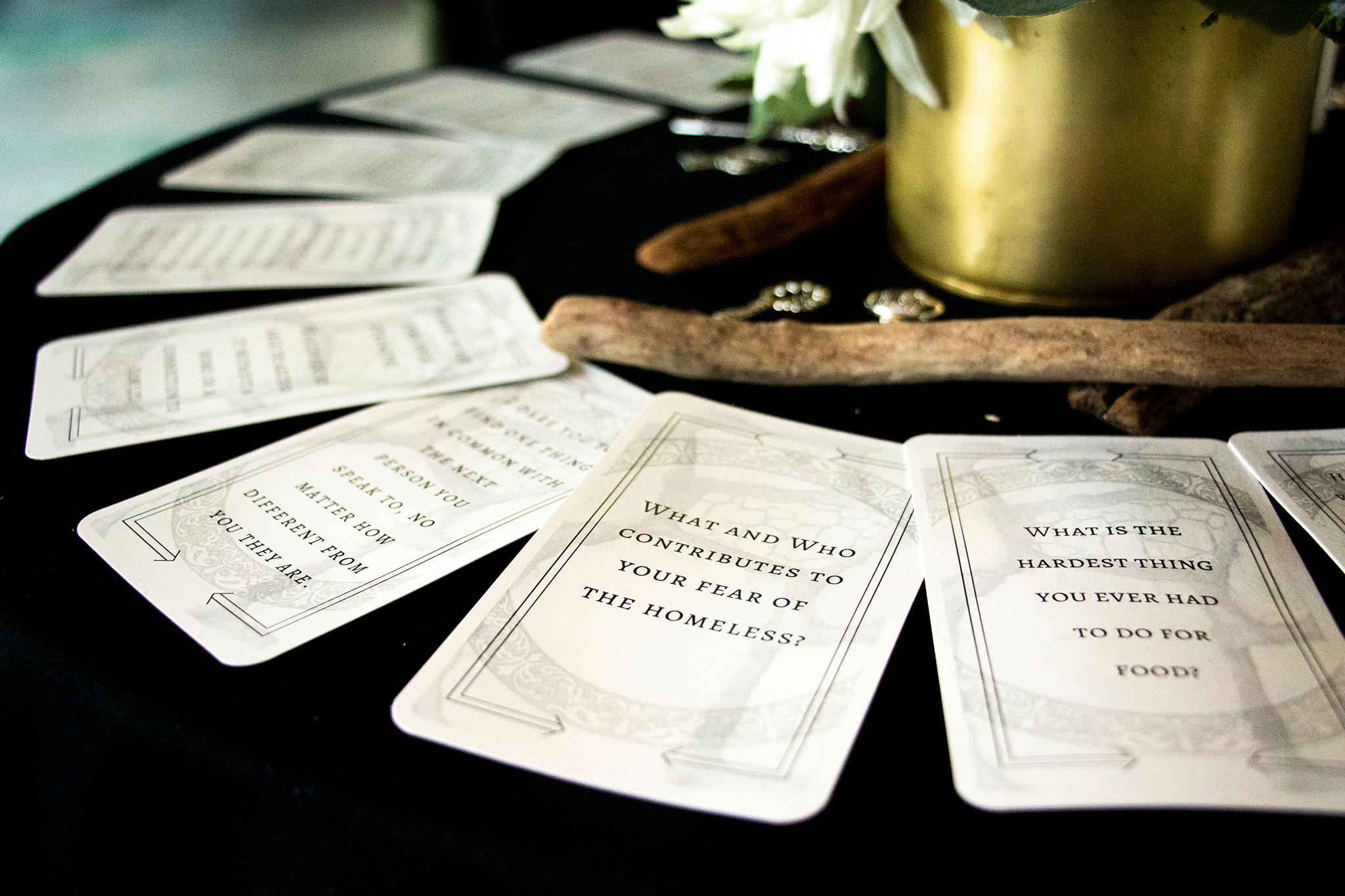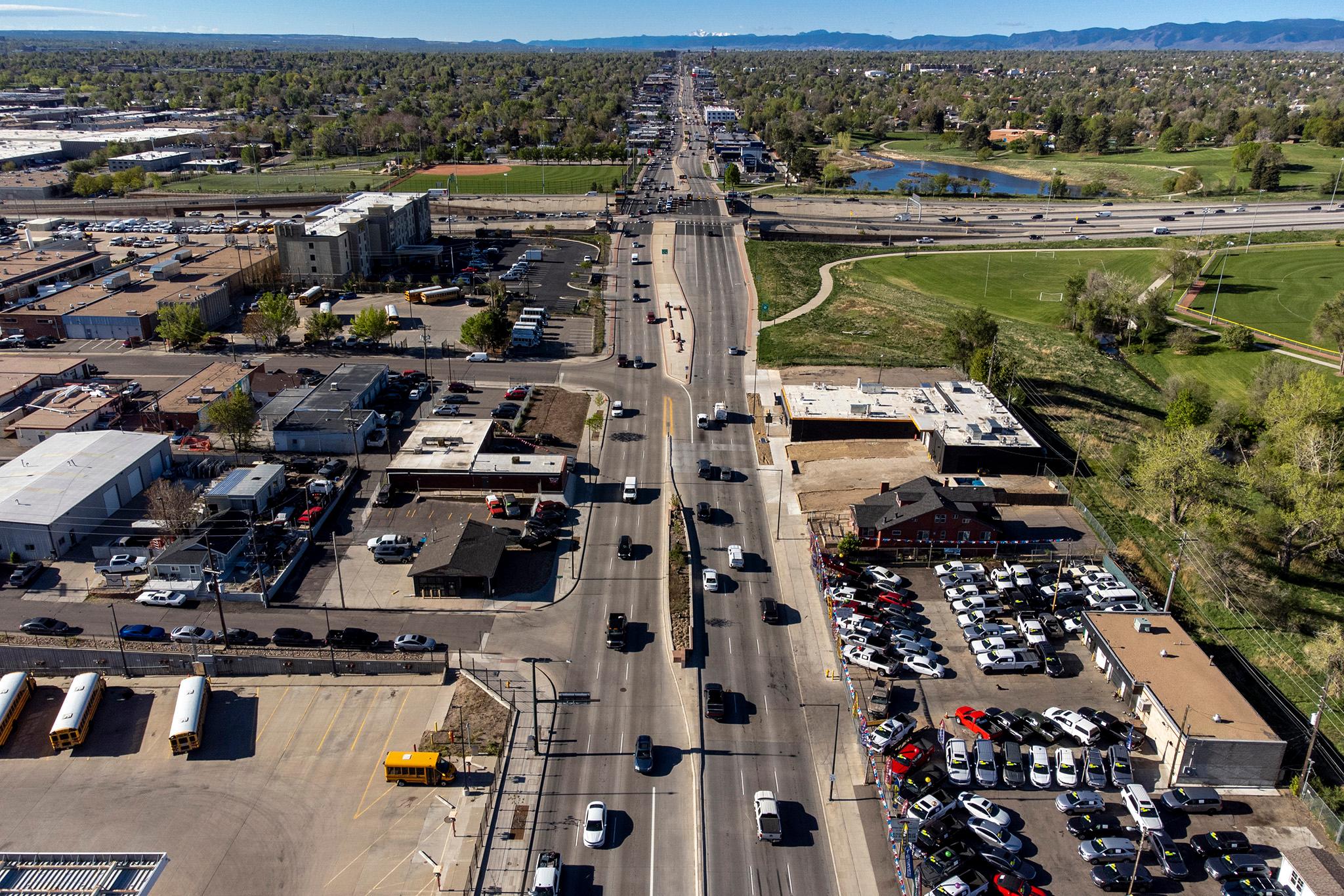If your timing is good, you'll catch the artist at work.
Luna Raine wants viewers to engage. She's working in a studio at one end of a gallery at Taxi where her paintings, photographs and sculpture exploring homelessness and empathy are exhibited. Some of the work is being completed during her show, which will be up through December.
"I'm not one of those people that ever got weirded out when someone was looking over my shoulder when I'm drawing," Raine said. "I want to be open to anyone who's interested."
Her ease with people taking an interest was evident last Friday during lunchtime. She answered questions about her process and her life, including her experience of homelessness, from a steady stream of visitors to the glass-walled, 1,200-square-foot gallery overlooking the South Platte River on the ground floor of Flight, the building on the north end of the live-work campus that is Taxi.
Raine is the December artist-in-residence at Taxi. The residency was created last spring after the completion of Flight at 3575 Ringsby Court. Chris Woldum, vice president of finance and development for Zeppelin Development, the company behind Taxi, said the residency has been an opportunity to support local artists and bring national and international artists to Denver. Raine's show, he said, is also a chance to address the critical issue of homelessness.
Raine's show includes "The 300 Memorial Wall," constructed in part of pieces of driftwood, each representing someone who was experiencing homelessness who died in Denver last year.
The driftwood "really symbolizes what it feels like to be homeless," Raine said. "People kind of toss you aside."
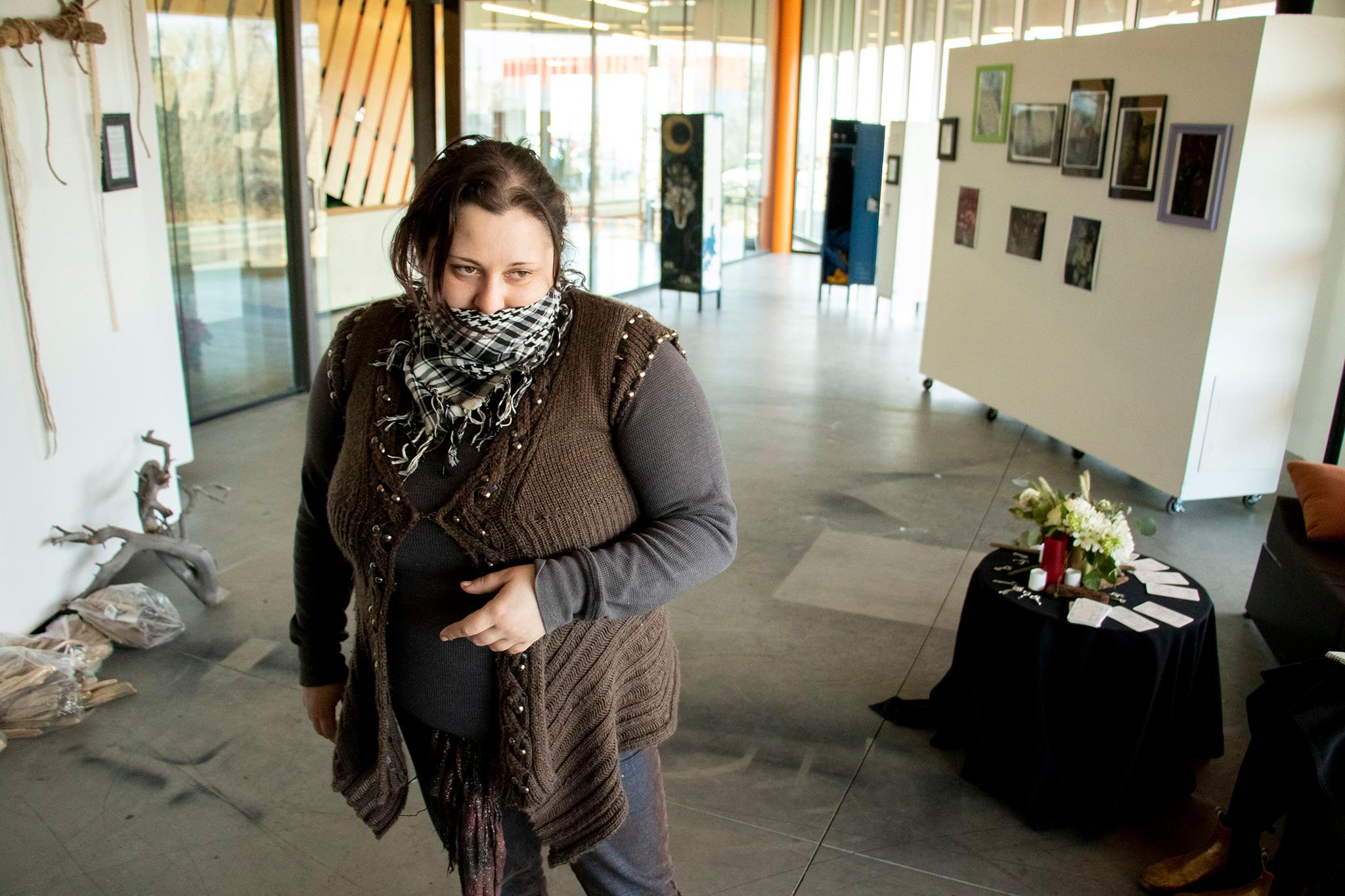
According to the Colorado Coalition for the Homeless, which holds an annual memorial vigil, at least 233 people experiencing homelessness died in Denver last year. A visitor might find Raine stringing up new pieces of driftwood from her supply in bags on the gallery floor. The finished "Memorial" will include mirrors, in hopes viewers will confront both their own mortality and their connection to those who may have been forgotten.
"I'm trying to find ways to bring empathy to people who are not naturally empathetic to this problem" of homelessness, Raine said.
The "300" in the piece's title refers to Initiative 300, a proposal on Denver's May municipal ballot that would have overturned an ordinance adopted by City Council in 2012 that made it illegal "to reside or dwell temporarily in a place, with shelter." Even a blanket is deemed "shelter" under the camping ban. Proponents of 300 argued the camping ban endangered people experiencing homelessness, forcing those who did not want to or could not access shelters to remote areas where they could be victims of crime. Researchers have interviewed people experiencing homelessness who would not use blankets or tents against the cold for fear of drawing unwanted attention from police.
Voters resoundingly rejected 300 after a well-financed campaign that argued the camping ban was needed to maintain order and sanitation in the city's public spaces. Raine was among many who also heard in the anti-300 rhetoric a vilification of people experiencing homelessness.
"This piece is to honor those who the city shunned to death," she said of her driftwood sculpture.
Bright silver keys -- "kind of like house keys," Raine said -- are scattered around the gallery. She will add them to "Memorial" as well.
Much of her work, she said, is about "trying to find a grounded place when you don't feel grounded."
Work in the show includes photographs from her college days. She trained as an art photographer and is also a writer.
"There's a lot of homeless people with degrees. Or close to degrees," she said.
Raine's journey from homelessness is, like her gallery show, under construction. She was a founding resident of and still lives in Beloved Community Village, a collection of tiny homes designed as an alternative to shelters. Several residents have moved to permanent housing in the two and a half years since the first tiny homes were built.
Zeppelin Development's Woldum said he was first connected with Raine when his company offered to host the tiny home village at Taxi. That fell through after city officials deemed the plot inappropriate, citing flood concerns. The village ended up a short walk from Flight, the Taxi building that houses Boa. Bot makes high-tech parts for sports equipment and employs Raine as an administrative assistant. Many visitors to her show are co-workers. Boa has catered gallery events for Raine.
"They've been super supportive," she said. "My Boa family is something that I cherish very much."
Experiencing homelessness, she said, can mean losing "your connections. You end up being transient. You go from place to place."
Raine came to Colorado three years ago, eager to get away from a relationship gone bad in New Jersey. She had been invited to stay with a friend in Denver. After a week, she said, the friend asked her to leave without explanation.
"My first week when I was homeless, someone took my suitcase out of the, quote-unquote, secure storage at Samaritan," she said, referring to a shelter run by Catholic Charities.
Another of the pieces in her show is composed of three lockers, like those found in a high school hallway. Raine is painting the lockers as part of a project by the advocacy group Denver Homeless Out Loud and the Five Points art and community center RedLine to provide places for people experiencing homelessness to store their belongings.
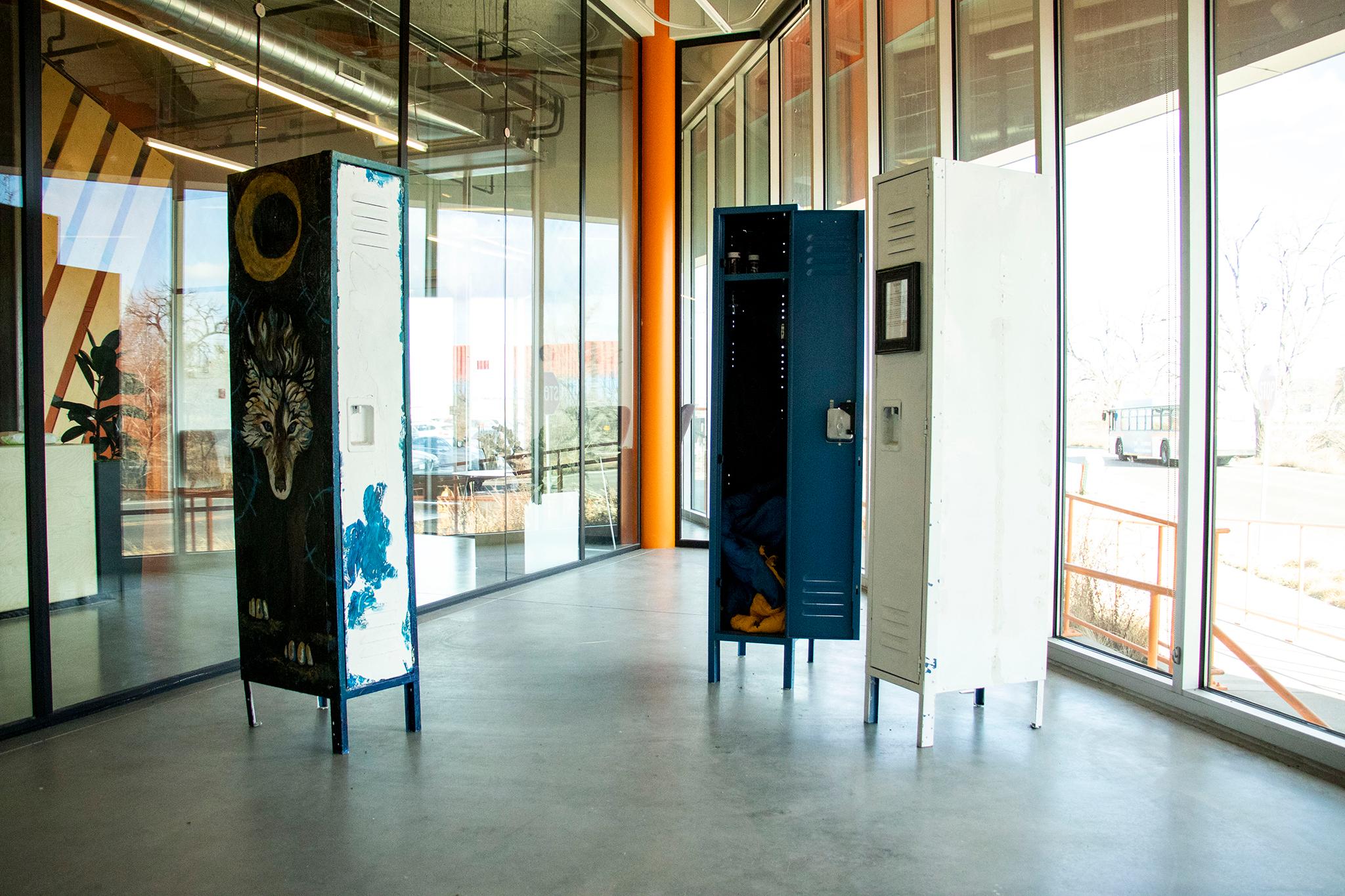
Raine has painted a portrait of a wolf in moody blues and browns under a bright moon on the side of one of the lockers.
"They're very misunderstood animals that have been stigmatized," she said.
The door of a locker she has not yet painted has been left open. Viewers can see medicine bottles on a shelf, a coat, a blanket. Raine wants viewers to imagine losing medication in the chaos of being moved in a street clean-up. Or applying for a job and wondering where to store everything you own, because taking it all along to an interview is unlikely to make a good impression.
"There's just so much that people don't even think about," she said.
A couch sits in a corner of the gallery before a table holding a set of 36 "conversation cards" Raine designed.
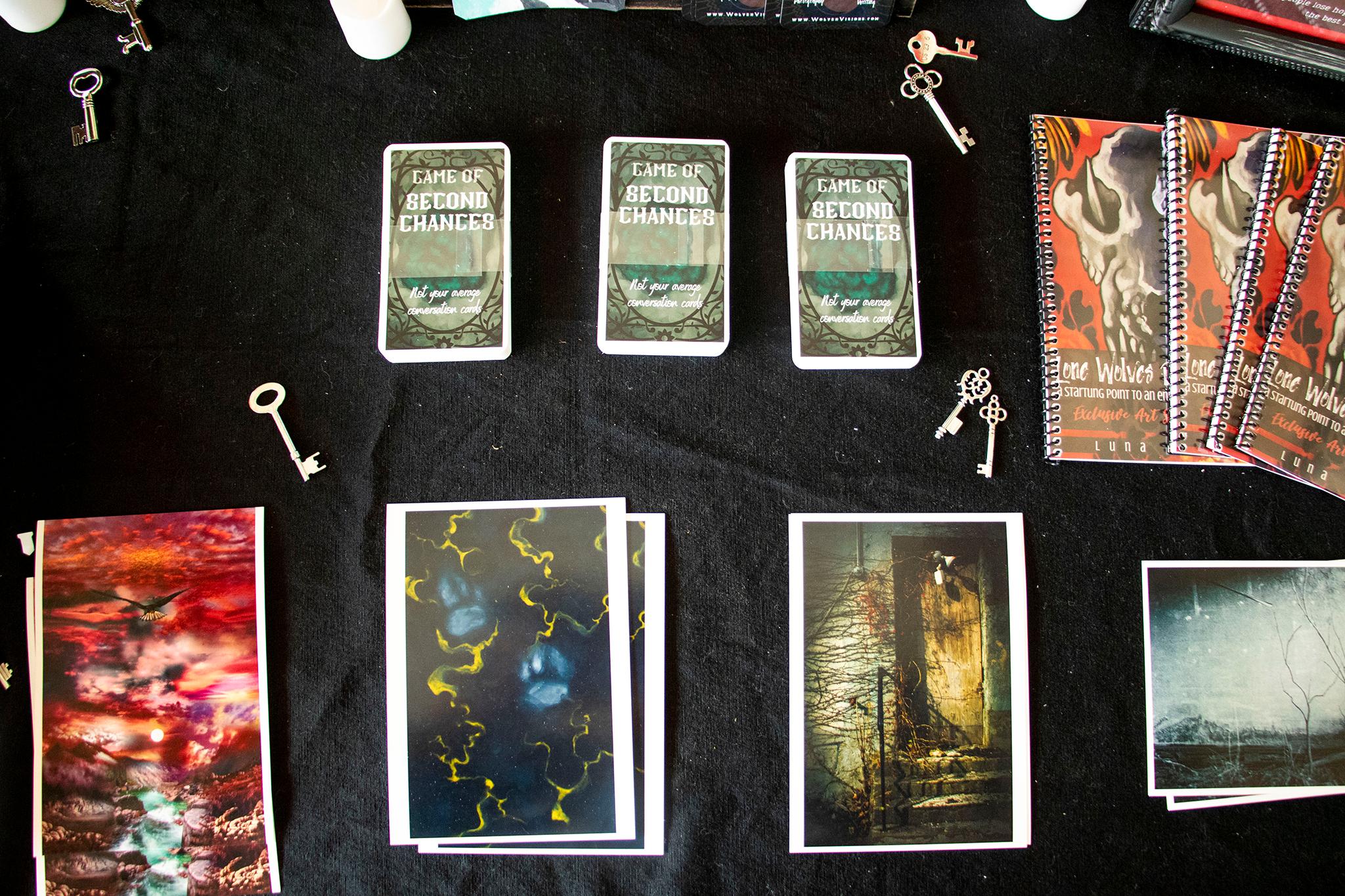
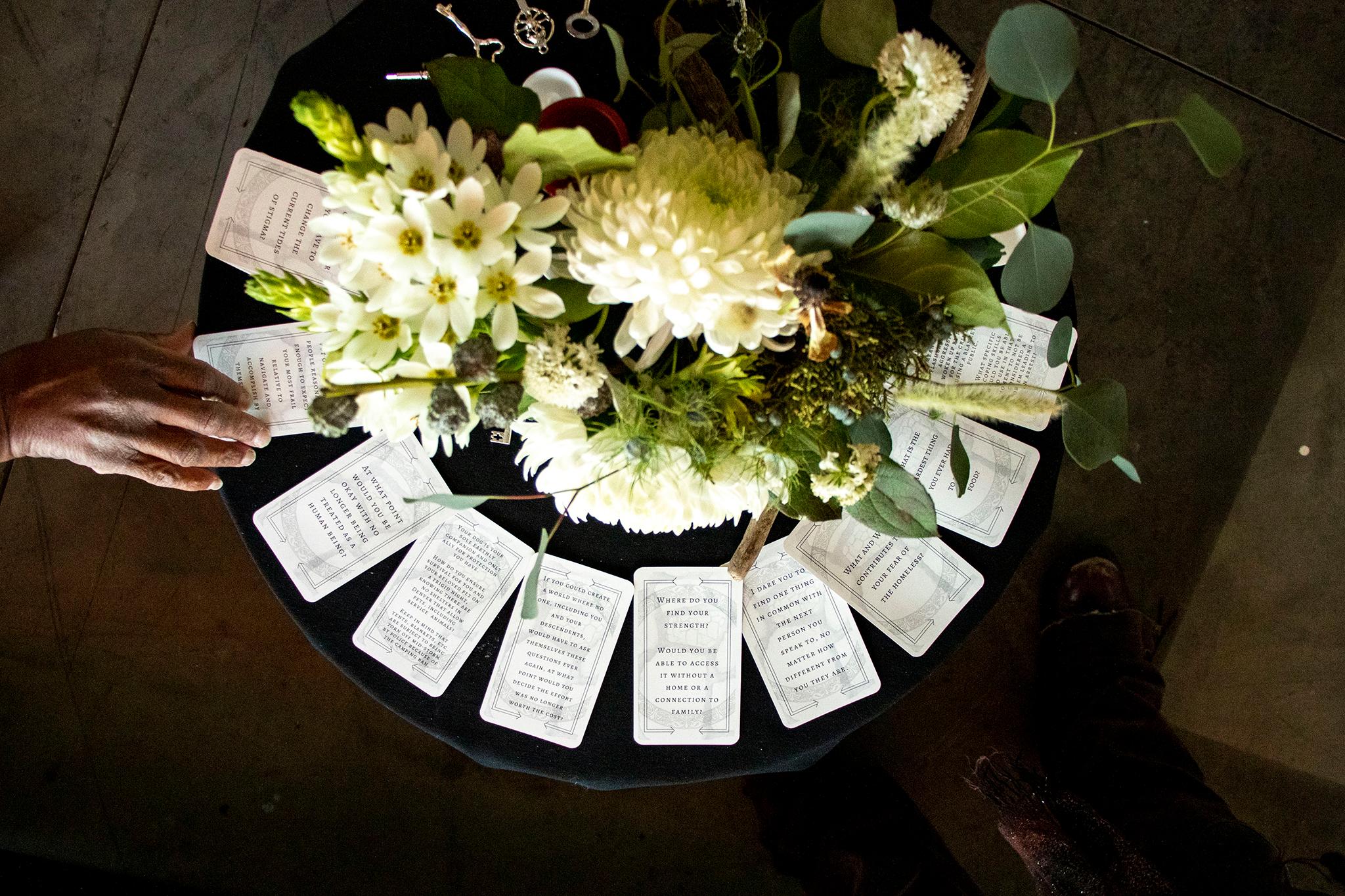
One card reads:
"At what point would you be okay with no longer being treated as a human being?"
Another:
"Your dog is your sole earthly companion and only ally for protection you have. How do you ensure survival for you and your beloved pet on a frigid night, knowing there are no shelters in Denver that allow pets, including service animals?"
Some of the cards spell out situations Raine has experienced, others contain stories she has heard.
Raine is selling the cards for $5 a pack. She wants to send people home with ideas to contemplate, perhaps a holiday conversation starter among family and friends.
"Just tell them you're going to play UNO," she said. "Then real life hits."
Raine's show is open Tuesdays and Fridays from noon to 2 p.m. or by appointment. She can be reached at [email protected]

